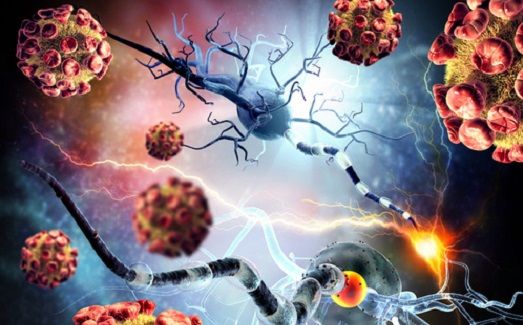Article
An Upside to Multiple Sclerosis? Cancer Risk and MS
Author(s):
Multiple sclerosis patients appear to be less likely to get cancer, possibly because of drugs they take to modify the symptoms of MS.

Patients with multiple sclerosis appear to have a lower risk of getting cancer.
A fall 2016 study by doctors in the New York State Multiple Sclerosis Consortium (NYSMSC) addressed the problem of having limited data on the effects of disease-modifying therapies (DMTs) in MS patients. There is a particular lack of data on "the association of immunomodulating (IM) and immunosuppressive (IS) treatments for multiple sclerosis, and risk of cancer, " they said.
Nevertheless, the researchers discovered that patients with MS have a possible "cancer-specific survival benefit" and that there is a lower all-cause mortality among MS patients with cancer compared to general population with cancer.
Deeya Gaindh, MD, from the Jacobs Comprehensive MS Treatment and Research Center at the University at Buffalo, and colleagues working on behalf of NYSMSC, were troubled by conflicting reports on increased risk factors in MS patients who received IM and IS treatments, and concerned with the lack of long-term cancer risk studies on the use of (DMTs). Their concerns triggered an analysis by the NYSMSC to evaluate the association of cancer with DMT use, and look for links between family histories of MS and cancer.
Gaindh and colleagues accessed the NYSMSC's MS registry to perform a retrospective analysis of longitudinal registry information on 9,240 MS patients. The patient data were collected between 1996 to 2013, and included demographic and self-report assessments, as well as clinical data from examining physicians and nurses. The data were then compared to data on cancer prevalence and incidence rates obtained from the 2012 SEER 18 population estimates.
Gaindh reports that based on the comparative data there were significantly fewer cancer cases reported overall among MS patients than expected. Although initially there seemed to be a significant link between those MS patients diagnosed with cancer and the use of DMT prior to cancer diagnosis, in subsequent "ever vs. naive" analysis of DMT use the difference was found to be statistically insignificant.
The most significant link between MS and cancer was determined to be family history of both diseases. Gaindh writes that "as expected MS patients reporting cancer were more likely to have a family history of cancer. However, we found a significantly lower than expected number of cancer cases among MS patients in both males and females compared to the general population."
The NYSMSC team theorizes that although the reason for the decreased risk of cancer in MS patients is "unclear, it is possible that activation of the immune system in MS results in protective effects against cancer."
They propose that "identifying the role of the immune system and subsequent cancer development" could "lead to increasing interest in utilizing the immune system for cancer therapy and prevention." Commonly used DMTs targeting immune systems in MS patients could be adding an increased immune protection against cancer, but long term use will still need to be evaluated to determine if the "suppressive properties of the inflammatory process of DMTs" could lead to loss of those immune protections over time.
Gaindh and the NYSMSC group recommend increased data collection and clinical monitoring of "MS patients on long-term DMTs" to further corroborate the study's findings with respect to DMT use and cancer.
The article " Decreased risk of cancer in multiple sclerosis patients and analysis of the effect of disease modifying therapies on cancer risk" was published in the 2016 issue of the Journal of Neurological Science.
Related Coverage:
Study Suggests Link Between MS Drug and Colorectal Cancer Risk
Multiple Sclerosis Drug Does Not Cause Cancer
Multiple Sclerosis Symptoms Reduced with Experimental Cancer Drug





